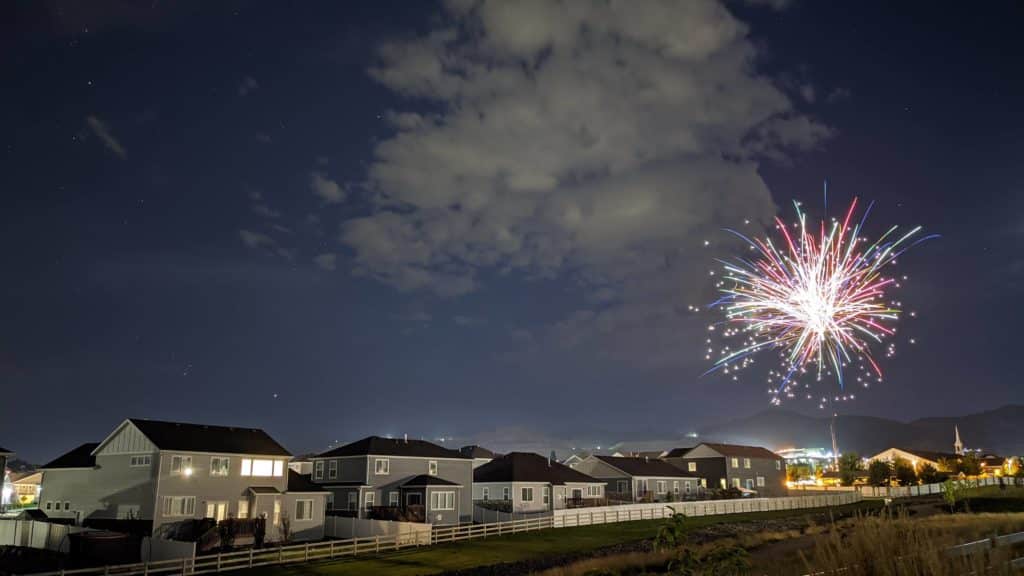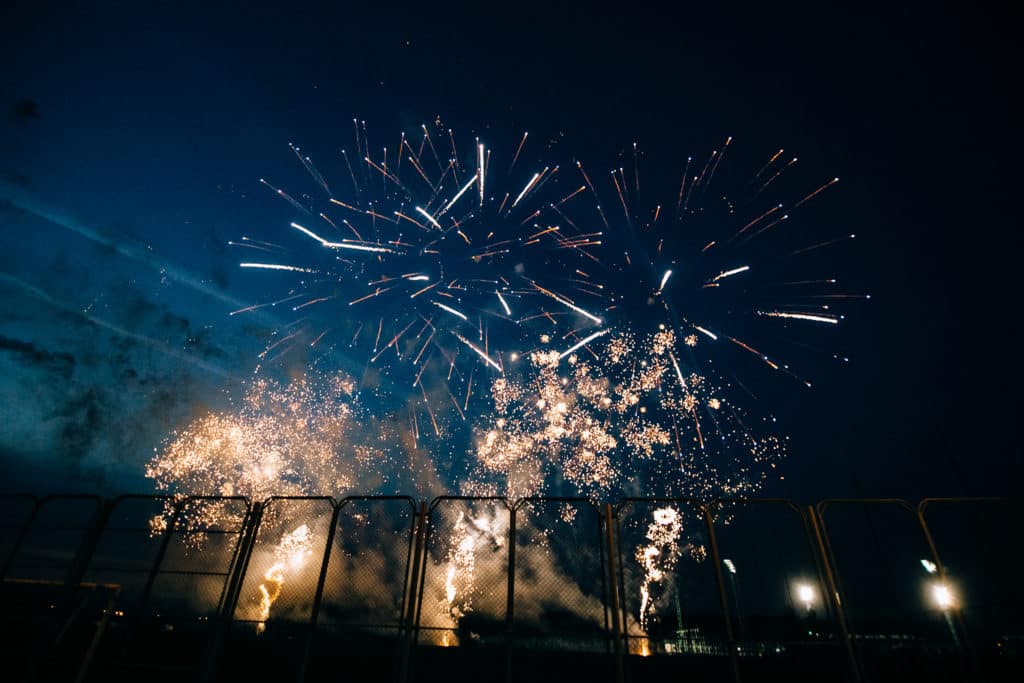When I was twelve years old, our Independence Day celebration took an unexpected turn. After enjoying our own party kit of fireworks and watching the city put on a real show, we retreated to the relative quiet and dark of the house for the rest of the evening. After some time, however, my bedroom window began to glow with red and blue lights that seemed too bright for fireworks.
Upon peeking through the blinds, I saw with my own young eyes the police cars and firetrucks crowding our street in a concerted effort to quell a vengeful fire attacking our neighbor’s home. A delinquent firework had worked its mischief, and years later their cement still bore the mark of it.
That misbehaving bout of pyrotechnics was my first look into just how dangerous fireworks can be, especially to personal property. No one wants to spend the Fourth of July fighting a house or fence fire, so protect your fence and home this holiday by sticking to the following suggestions.

Safety First
Of course your goal is never for fireworks to get out of hand, but accidents happen. In case of an emergency, keep a bucket of water—or even a fire extinguisher if you have one available—on hand. Make sure the smoke detectors of your home are working with live batteries. Before disposing of spent fireworks, dunk them in water to extinguish hidden smoldering embers.
Remember that no matter how many precautions you take, others around you may not be so vigilant. My neighbors’ charred façade is proof enough of that. Have safety plans in place to protect your fence and home in case an errant firework comes from unexpected quarters.
Prepped and Ready
You should only ever shoot fireworks off from a flat and non-flammable surface. Make sure your launch zone is open and cleared off, free of debris, especially dead brush. If you care about your fence, never use it to shoot off fireworks. The heat of reacting gunpowder destroys common fencing materials like wood and vinyl.

The Right Way to Light
There’s no rush when lighting fireworks. Pay attention the entire time, setting aside distractions. Light them one at a time, and don’t hold explosive fireworks in your hands during ignition. Make sure you put plenty of distance between the fireworks and people, fences, houses, vehicles, trees, and other structures. Never point a firework at any of these things. If a firework is defective, do not attempt to relight it. Maintain a safe distance from fireworks once they are lit. That distance will depend on the type of rocket you’re setting off. Give spinners more space than, say, sparklers, which are designed to be held.
Keep Away From the Kiddos
Fireworks are magically mesmerizing and they can explode. What more could you want? They are a kid’s dream. Unfortunately, that dream can go south very quickly if fireworks are not handled properly. If you want to protect your fence, your property, and especially your children, never let them handle fireworks unsupervised. Help your children understand the importance of fire safety whether they are working with snappers or Roman Candles, and use discretion about which age groups are appropriate for each kind of firework.
Protect the Pets
Remember that because fireworks are so loud and bright, they can be very startling for pets. Dogs especially have been known to chew or break through fences when startled by fireworks. Keep your pets close during firework displays. This can help to calm them and simultaneously protect your fence.
All the Trimmings
The most likely things to catch fire around fireworks are shrubbery and plant life. Strictly speaking, dead plants are the most likely, but thriving low-hanging leaves and branches have also initiated many a fire. Keep trees and other foliage trimmed, especially those close to the house or fence. Clear away dead leaves, gutter debris, and dead brush and keep your patriotic fun away from landscaping with bark or wood chips.

Keep it Legal
Every state has different rules detailing what is permitted in the firework department. These restrictions are further refined by city, so make sure you check that fireworks are legal in your area before you purchase and set them off. To make sure that your fireworks are of good quality, make sure to only purchase them from vendors that are reliable and licensed.
Play it Safe
In Utah especially, it is important to monitor fire hazard levels during the July heat. Though keeping celebrations small is an unglamorous way to protect your fence from fire damage, it may be the wise option in our drought-ridden state. Keep your holiday safe this year and really monitor your firework fun.

